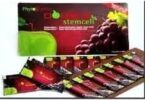No matter whether it is for long-term storage or temporary needs, items you access frequently should be located near the front. Labeling each box to identify its contents is essential to saving both time and locating boxes when required. Labels make this task faster, but that’s only the tip of the iceberg.... CLICK TO READ THE FULL NEWS HERE▶▶
How To Declutter And Organise Your Living Or Workspace In Sydney Using Storage Units
A storage unit should provide a secure place to keep your belongings, without being an overstuffed mess of trash bags, boxes and furniture. Make your unit an extension of your home or office and follow these best practices to keep things organized and accessible when you need them.
1. Itemize Boxes
A simple system for labeling boxes can save you a great deal of hassle when retrieving something from storage. Trying to recall which one contains your favorite book could take hours (and multiple trips!) Instead, make a list of everything in each box and number and itemize them. This can be done manually on paper or electronically in Excel for quick reference.
2. Arrange by Category

Certain items will likely be accessed more frequently, like your baby’s packed ‘n play or summer wardrobe. These should be placed closer to the entrance of your unit so they’re easier to access when necessary, while less-frequently needed items, like artifacts and leftovers should go towards the back of it.
3. Create an Aisle
Arranging items in neat rows makes searching easier; keeping all kitchen equipment together, for instance, makes finding that specific bowel much simpler. If you don’t have space for aisles, simply keep boxes in separate sections of the unit.
4. Add Shelves
By adding freestanding shelves to your unit, you will maximize space and make organizing easier. These durable structures also reduce the chance of any items being crushed over time by being stored together on shelves.
5. Outline Your Storage Unit
Even if you don’t create an architecturally accurate map with precise dimensions for your unit, it is still beneficial to have some idea of its contents when moving items into it. This doesn’t need to be an exact plan of where everything will go but could simply include a rough sketch with sections for each room in which items will reside.
When placing items in a unit, start by placing large and heavy objects at the base. This includes furniture and boxes – it provides a solid base which makes stacking smaller boxes on top easier as well as fitting small items into crevices of large objects such as furniture.
Stacking boxes is an efficient way to save space, but make sure that you choose sturdy storage containers like trunks or plastic bins if possible. Flimsier containers within your storage units Sydney could tip over, crushing anything underneath. Also try selecting identical-sized boxes so each side weighs the same; doing so ensures each side remains even, and that lighter boxes won’t get crushed under heavier ones.
An effective way to safeguard your belongings when it comes to outdoor units is lining the floors with tarpaulin or wooden pallets – particularly outdoor units with moisture issues – such as keeping moisture off floors and walls and off your belongings over time. You might also consider lining it with plastic drop cloth to reduce dust and moisture build-up inside.
If you plan on keeping items in storage for an extended period, tiers may help organize them effectively. A tier is simply a thick wall composed of furniture and boxes extending from side to side within your storage unit – start building one along the back wall, fill in more tiers until you reach the middle, etc.
As a final step, place any items you plan to access frequently near the front of the storage unit. This will make finding what you’re searching for easier; perhaps mark some items as “frequently accessed” using markers or tape so they’re easy to spot when needed.
Finding the Perfect Storage Solution in Sydney
When looking for storage in Sydney, several key considerations must be kept in mind. You need a company that offers competitive rates with quality security measures in place as well as having an inspection facility you feel confident will protect your belongings from being mishandled by thieves or vandals.
Australian storage space costs an average of $250 per month on average; prices can differ based on region and location. When looking for the ideal company, look for one with reasonable rates while not skimping on quality; inspect their units before becoming their customer as if something is being hidden, this could end up costing more in the long run.
When looking for an inexpensive storage unit in Sydney, be sure to ask whether multiple sizes are offered so that you can find the ideal match for your belongings. Otherwise, don’t waste your time or money with companies offering only one size – one-size storage facilities aren’t worth their salt if they require long travel times to access your items! Moreover, accessibility should always be taken into consideration to avoid lengthy waits to access them!
Security measures in a storage facility are of great significance when renting one; these should include CCTV monitoring and 24-hour onsite patrols to protect your items, as well as additional features like locks or alarm systems to further safeguard them against theft. Before renting space, be sure to ask the store manager about these security measures.
Many tourists visit Sydney to take advantage of its beautiful beaches and vibrant shops, but carrying their entire luggage around with them can be cumbersome and tiresome. There are a few traditional baggage storage operators in Sydney; however, they tend to be costly and don’t provide as much flexibility as Stasher does. There are other options such as keeping luggage stored at Central Station that could offer better storage solutions than traditional operators.
Reputation is of utmost importance when selecting the right company to go with, so ensure they provide superior customer service and high-quality units. Also investigate any past complaints or other issues they have faced by reading reviews online and listening to what other customers say about them.










